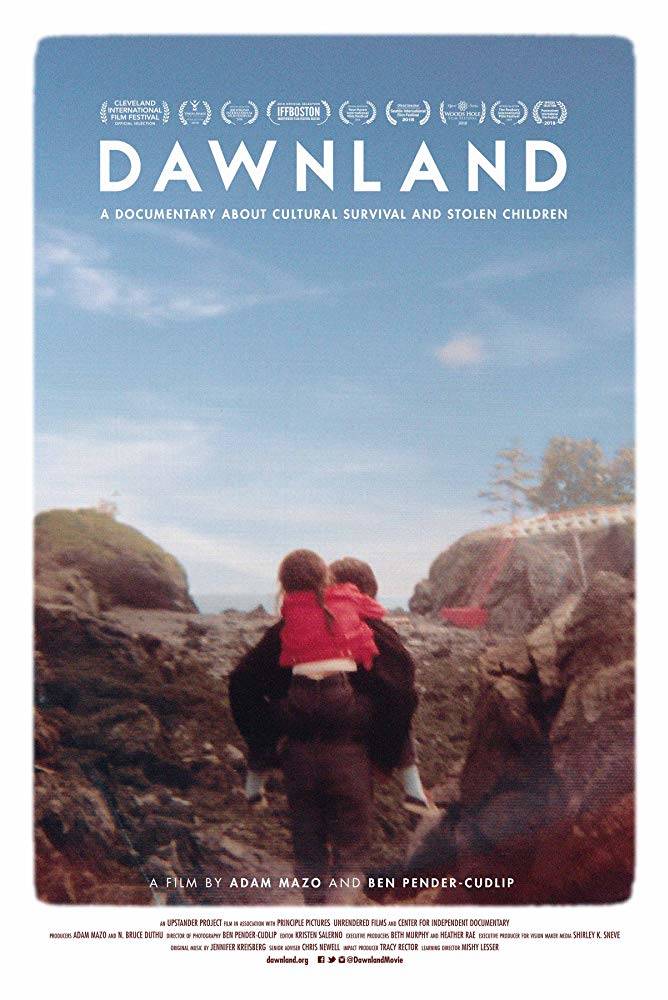As it celebrates Alaska Native and Native American Heritage month, Kenai Peninsula College will offer a special presentation Thursday of “Dawnland,” a 2018 documentary that explores the forced assimilation of Native children.
Organizers hope the film will help open a discussion about how to heal from past atrocities that have scarred Native American and Alaskan community members, including those who grew up on the peninsula.
Sondra Shaginoff-Stuart is a rural Native student services coordinator at KPC and an adjunct teacher in the Ahtna Dene language, and will partner with Jennifer Williams to open the discussion following the film. Shaginoff-Stuart said the movie highlights the events that took place in the northeast United States, which included family separations, boarding school practices and attempts to eradicate Native culture.
“It touches on so many aspects of what we’ve been going through in our community,” Shaginoff-Stuart said. “It really shows a clip of a community and how they are making changes to help with these issues.”
The documentary delves into the child welfare practices imposed on indigenous communities in Maine, bringing into clearer focus the pain of Native children being separated from their families, depriving them of their culture and erasing their identities.
Alaska Natives experienced a similar era that lasted for decades, according to Shaginoff-Stuart. Until 1976, when a court case forced the state to build schools in Native communities with eight or more children, the stories of children being taken from their families were routine and painful for several generations of Alaska Natives, Shaginoff-Stuart said.
She said the history of how Native Alaskans have been treated reveals a dark past that many would like to forget, including her own family.
“When I first viewed it, I thought of the boarding school era and what my family went through,” she said. “My parents were both put in boarding schools and children’s homes. Both of them didn’t learn their language, and they lost a lot of that (culture). I’ve been regaining that myself for my family and my children, and part of the discussions that my family wasn’t able to talk about it because they were too painful.”
Shaginoff-Stuart said her mother learned and can understand the Paiute language, which was spoken by members of the Pyramid Lake reservation around Reno, Nevada, but said her mother refuses to speak it herself.
With many young people suffering from tuberculosis and influenza in the early days of Alaska statehood, the government used the boarding schools and children’s homes as a way to control Native populations around the state. That led to conditions in the boarding schools that Shaginoff-Stuart said mirrors the experiences of Native communities in Maine.
“We saw a correlation in how families have been treated,” she said. “And just like our language, there was a missing gap in their language. A lot of children have been through the process of being taken way from families or placed in boarding schools. They lost their families through the influenza epidemic.
“I believe we don’t talk about these things enough because they’re so painful and traumatic and so damaging, and this documentary really touches on what they went through as parents and how the courts recognized this is wrong, and what they do afterwards to heal from this.”
KPC Evening Coordinator Dave Atcheson, who runs the KPC Showcase series, said the film is very topical for the peninsula but also brings a heavy emotional load.
“It’s won a ton of awards and has been really well-received, although some of the content is emotional and there’s a warning for some viewers,” Atcheson said.
Shaginoff-Stuart said she hopes the discussion will continue past Thursday and the community can collectively heal from the past while looking to build a stronger future.
“We’d like to bring awareness and hopefully start discussions and start thinking about how we heal from these tragedies,” she said.
Other KPC events in November include Rock Your Mocs on Thursday, which encourages people to wear show up for a 4 p.m. photo opportunity wearing moccasins and other Native Alaskan regalia, a Nov. 21 performance by Cody Ferguson, a Yup’ik singer and comedian who teaches Yup’ik dance at UAA, and a potluck on Nov. 23 in the residence hall, which is open to everyone.
KPC will show the film Thursday at 6:30 p.m. in the McLane Commons on campus as part of its monthlong schedule of events celebrating Native American Heritage month.

